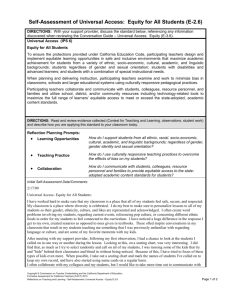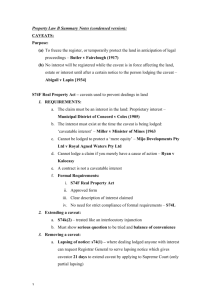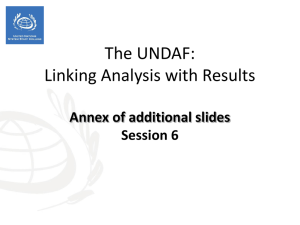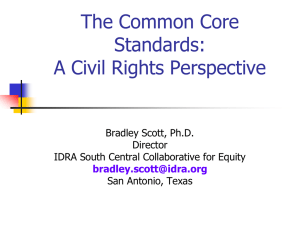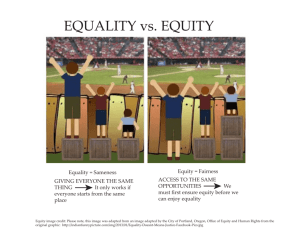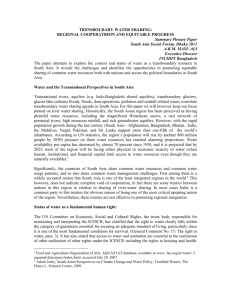imageREAL Capture
advertisement
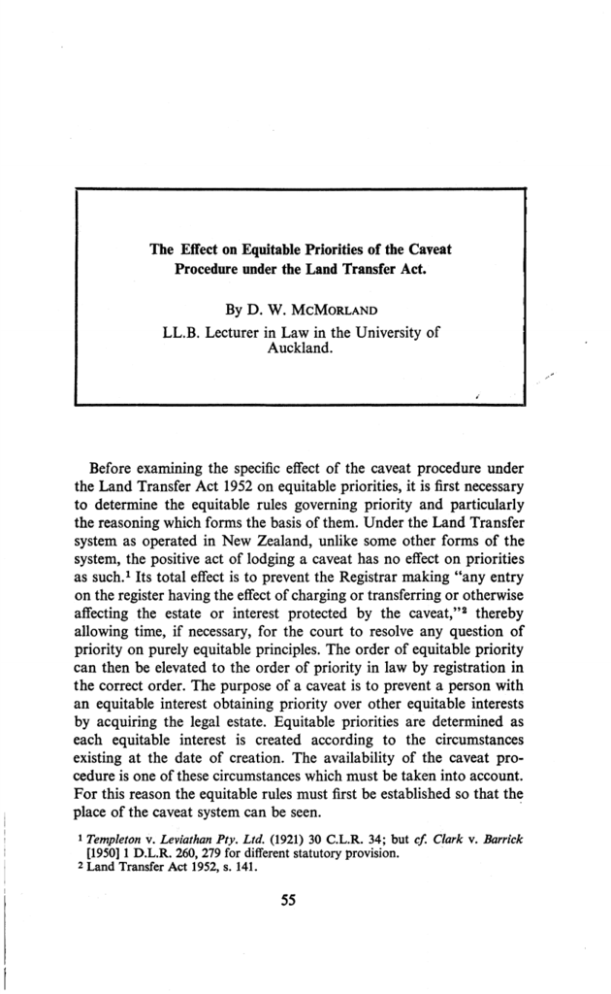
The Effect on Equitable Priorities of the Caveat Procedure under the Land Transfer Act. By D. W. McMoRLAND LL.B. Lecturer in Law in the University of Auckland. Before examining the specific effect of the caveat procedure under the Land Transfer Act 1952 on equitable priorities, it is first necessary to' determine the equitable rules governing priority and particularly the reasoning which forms the basis of them. Under the Land Transfer system as operated in New Zealand, unlike some other forms of the system, the positive act of lodging a caveat has no effect on priorities as such. l Its total effect is to prevent the Registrar making "any entry on the register having the effect of charging or transferring or otherwise affecting the estate or interest protected by the caveat,"2 thereby allowing time, if necessary, for the court to resolve any question of priority on purely equitable principles. The order of equitable priority can then be elevated to the order of priority in law by registration in the correct order. The purpose of a caveat is to prevent a person with an equitable interest obtaining priority over other equitable interests by acquiring the legal estate. Equitable priorities are determined as each equitable interest is created according to the circumstances existing at the date of creation. The availability of the caveat procedure is one of these circumstances which must be taken into account. For this reason the equitable rules must first be established so that th~ place of the caveat system can be seen. Templeton v. Leviathan Pty. Ltd. (1921) 30 C.L.R. 34; but cf. Clark v. Barrick [1950] 1 D.L.R. 260, 279 for different statutory provision. ' 2 Land Transfer Act 1952, s. 141. t S5 56 Auckland University Law Review The basic rule governing equitable priorities is contained in the maxim qui prior est tempore potior est jure: he who is earlier in time is stronger in law. The case usually cited in support of the maxim is Rice v.Rice 3 in which Kindersley, V.C., referred to the maxim and commented on it as follows 4 : And I think the meaning is this: that, in a contest between persons having only equitable interests, priority of time is the ground of preference last resorted to; Le., that a Court of Equity will not prefer the one to the other, on the mere ground of priority of time, until it finds upon an examination of their relative merits that there is no other sufficient ground of preference between them, or, in other words, that their equities are in all other respects equal; and that, if the one has on other grounds a better equity than the other, priority of time is immaterial. In determining whether the equities are in all other respects equal his Lordship went on to say that regard must be had to "the nature and condition of their respective equitable interests, the circumstances and manner of their acquisition, and the whole conduct of each party with respect thereto."5 However, Lord Wright, delivering the advice of the Privy Council in Abigail v. Lapin, 6 commented on this passage that 7 : The opinion of the Vice-Chancellor no doubt has not been approved in so far as he says that priority in time is only taken as the test where the equities are otherwise equal: it· is now clearly established that prima facie priority in time will decide the matter unless ... that which is relied on to take away the preexisting equitable title can be shown to be something tangible and distinct having grave and strong effect to accomplish the purpose. This is a clear change of emphasis giving the maxim the force of a rebuttable presumption and thereby making it plain that the burden of proof lies on the person who wants to deprive the other of a preexisting equity. Examples of the classes of conduct "having grave and strong effect to accomplish the purpose" of taking away the pre-existing equitable title can be found in the decided cases. In Rice v. RiceS the vendor had given to the purchaser the title deeds and the conveyance containing a receipt for the purchase money without receiving payment. The purchaser in turn gave an equitable mortgage by depositing the title deeds and then absconded leaving the unpaid vendor and the equitable mortgagee to determine the question· of ownership. It was held that possession of the title deeds and the fact of the endorsement 3 4 5 6 7 (1853) Drew. 73; 61 E.R. 646. Ibid., 78; 648. Idem. [1934] A.C. 491. Ibid., 504. 8 Supra. It should be noted that the Property Law Act 1952, s. 28 abolishes the vendor's lien for non-payment of purchase money. The Effect on Equitable Priorities 57 of a receipt gave. the mortgagee a better equity so that he obtained priority although he was not first in time. In Honeybone v. National Bank of New Zealand (Ltd.)9 the plaintiff and owner of the property had borrowed money from Knight and, instead of giving a mortgage, had signed an absolute transfer giving this and the title to Knight as security on arrangement that the transfer should not be registered. Knight, however, did register the transfer and later gave a mortgage over the title to the defendant bank. This mortgage was not presented for registration until some months later and after the plaintiff had lodged a caveat to protect his interest. Both parties had therefore only equitable interests and it was a question of determining priority. It was held that since the plaintiff had falsely represented the transaction bet\veen himself and Knight to have been a sale and not a mortgage, and had placed Knight in the position of being able to obtain a title as registered proprietor, the plaintiff's equity must be postponed to that of the bank. To determine the effect of the availability of the caveat procedure it is necessary to understand exactly the basic reasoning behind the postponement of an equity to one later in time. Some judges have seen this as an example of the equitable doctrine of estoppel, as in Dixon v. Muckieston 10 where Lord Selbourne, L.C., summed up the principles applicable and stated 11: But it must be something which raises a posit,ive equity against him, upon the principle which in equity, as distinct from law, is conveniently designated by the term "estoppel". This involves on the part· of the holder of the equity first in time a representation, .either by words or actions, or by failure to speak or act when under a duty to do so. The representation must, of course, be made to the holder of the equity seeking priority. However, this aspect of the topic was also covered by the advice of the Privy Council in Abigail v. Lapin. 12 It is true that in cases of conflicting equities the decision is often expressed to turn on representations made by the party postponed. . .. But it is seldom that the conduct of the person whose equity is postponed takes or can take the form of a direct representation to the person whose equity is preferred: the actual representation is in general, as in the present case, by the third party, who has been placed by the conduct of the party postponed in a position to make the representation, most often, as here, because that party has vested in him a legal estate or has given him the indicia of a legal estate in excess of the (1890) 9 N.Z.L.R. 102. L.R. 8 Ch. App. 155. 11 Ibid., 160. A further example of a decision based on the grounds of misrepresenta.. tion is King v. King, [1931] 2 Ch. 294. 12 [1934] A.C. 491, 507. 9 10 (1872) Auckland University Law Review 58 interest which he was entitled in fact to have, so that he has in consequence been enabled to enter into the transaction with the third party on the faith of his possessing the larger estate. This may be compared with another passage from Dixon v. Muckieston I3 which states that the holder of the equity prior in time "may have armed another person with the power of going into the world under false colours." It is submitted that this is the true basis for the postponement of the prior equity, rather than any argument based on misrepresentation. An exception to the general principle is a beneficiary under a trust. What may be negligent conduct sufficient to cause postponement of the equity as regards all other types of equitable interests will not be negligent conduct as regards a cestui que trust. Though it is not impossible for a beneficiary to lose his priority, the degree of negligent conduct required is considerably greater. Whereas it is negligence sufficient to cause postponement if the holder of the prior equity who is not a cestui que trust allows some person to have possession of the title deeds so as to represent himself as solely entitled, it will not be regarded as negligence if a cestui que trust leaves title deeds in the hands of his trustee. This difference arises from the equitable principles governing the relationship between the cestui que trust and the trustee, primarily that the former must be permitted to place absolute confidence in the latter and not be required to continually inquire into his conduct. This difference in the standard of negligent action is recognized in Shropshire Union Rys. & Canal,Co. v. The Queen 14 and also in Abigail v. Lapin 15 where it is rather unfairly, with due respect to their Lordships, commented that: "It may be that the application of this rule has been induced by the partiality of Courts of Equity for their protege, the cestui que trust." It is into this system, which places emphasis on the conduct of the holder of the equity prior in time, that the availability of the caveat procedure must be fitted. Although the Land Transfer system has altered the rules governing the dividing line between legal and equitable interests by postponing the transition to the time when the interest is registered, it was not intended to affect in any direct way the rules governing priorities between equitable interests inter see This has, however, been the effect in an indirect way. The "curtain principle", as it is called by Ruoff,16 states that the register is the sole source of information for proposing purchasers, and that, except in the case of fraud, they will take an estate free from all encumbrances which are 13 Supra. 14 (1875) 15 [1934] L.R. 7 H.L. 496, 506-507. A.C. 491, 505. 16 Ruoff, An Englishman Looks at the Torrens System, 11. "4 The Effect on Equitable Priorities 59 not notified on the register. By itself this would make protection impossible for the owner of an equitable interest so that the caveat procedure was incorporated in the Land Transfer Act enabling notice of equitable interests to be given and preventing registration of later equitable interests. The availability of this procedure must be taken into account by a court of equity determining priorities between equitable interests inter see The general rule applied by courts of equity where the caveat procedure is available has been settled for some fifty years by the decision of the High Court of Australia in Butler v. Fairclough. 17 This decision supports the rule that failure to lodge a caveat to protect the first equity by the date of the creation of the second equity will result in the postponement of the first equity to the second. The basic question is stated by Griffith, C.J., to be 18: "Had the plaintiff (owner of earlier equity) when the defendant (owner of later equity) acquired his equitable right taken or failed to take all reasonable steps to prevent (the registered proprietor) from dealing with the land without notice of plaintiff's title?" A duty is therefore placed upon the owner of an equitable interest to lodge a caveat where possible. At this point it should be made clear that the emphasis lies not on the notice, either actual constructive or imputed, which the owner of the later equity mayor may not have had at the date of the creation of his equity; but on the diligence of the owner of the earlier equity measured at the date of the creation of the later equity to take all reasonable steps to prevent the owner of the legal estate from dealing with it as though it were unencumbered. Notice is completely irrelevant to the topic of equitable priorities inter se; if the owner of the earlier equity has taken all such reasonable steps it is irrelevant that the owner of the later equity may not have had notice in any form. The rule is not analogous to that governing the relationship between an equitable interest and a later legal interest. This approach is supported by the statement in Dixon v. Muckleston 19 cited earlier tha~ the holder of the equity prior in time "may have armed another person with the power of going into the world under false colours." The emphasis is on the word "armed"; if the owner of the earlier equity could do nothing to prevent the person from having that power, then the fact that he had the power could not be used to the detriment of the earlier equity. Since it is proposed to examine more closely the situation regarding caveats later, the following example is taken from the period of English common law conveyancing. Under that system every mortgage other than the first had to be an 17 18 19 (1917) 23 C.L.R. 78. Ibid., 92. (1872) L.R. 8 Ch. App. 155, 160. 60 I Auckland University Law Review equitable mortgage since the first mortgage was in the form of a conveyance of the legal estate subject to an equity of redemption. A second mortgagee had therefore only an equitable interest which he could do nothing to protect and so could not be postponed to a later equity. The Land Transfer system itself, which enables most classes of interest to be registered and therefore to be legal interests, and the availability of the caveat procedure have, however, made it possible for the owner of almost every class of equitable interest to at least take the step of lodging a caveat for the protection of his interest. Failure to take this step is tantamount to arnling the registered proprietor "with the power of going into the world under false colours." The rule is strictly applied and may have harsh consequences. The facts of Butler v. Fairclough 20 itself illustrate this. The registered proprietor created an equitable mortgage on 30 June and on 2 July he entered into an agreement to sell the property. The equitable mortgagee lodged a caveat on 7 July and the purchaser's transfer was lodged on 12 July. It was held that the equitable mortgagee had failed to lodge a caveat and had therefore failed to take all reasonable steps to prevent the registered proprietor from dealing with the land. As a result of this failure the purchaser dealing with the proprietor on the faith of the register had been prejudiced and consequently the mortgagee's prior equity was postponed in favour of the subsequent equity of the purchaser. The equitable mortgagee had delayed only one week before lodging a caveat and would in fact have to have lodged the caveat either on the day of the creation of the charge or on the following day to have preceded the contract of sale. Butler v. Fairclough 20 was approved by the Privy Council in Abigail v. Lapin. 21 In that case the respondents, who were the registered proprietors of certain lands, transferred them to the nominee of a creditor by transfers which were expressed to be made in consideration of money payments and handed the titles to the transferee who then registered the transfers. The transfers, though absolute in form, were intended only as security for the debt, but the respondents did not lodge a caveat to protect their remaining interest in the land. Subsequently the transferee mortgaged the land to the appellant to secure a loan, but the appellant's mortgage was not registered so that it remained a question of priority between equities. It was held that the respondents' equity was to be postponed to the appellant's on the ground that no caveat had been lodged. The respondents had armed the transferee "with the power of going into the world under false colour,,;." "A caveat is the creature of statute and may be lodged only by a 20 21 Supra. [1934] A.C. 491. The Effect on Equitable Priorities 61 person upon whom a right to lodge it has been conferred by the statute."22 The terms of the right are that 23 : Any person-(a) claiming to be entitled to or to be beneficially interested in any land, estate, or interest under this Act by virtue of any unregistered agreement or other instrument or transmission, or of any trust expressed or implied, or otherwise howsoever; or (b) transferring any estate or interest under this Act to any other person to be held in trust-may at any time lodge with the Registrar a caveatin Form N in the Second Schedule to this Act. Although this is not the place for a full discussion of the meaning of the phrase "beneficially interested in any land, estate, or interest" there is a strong suggestion that a caveatable interest is limited to an equitable interest in the land itself which is capable either presently or in due course of being converted into a registrable estate or interest. 24 Certain cases concerning the right of a cestui que trust to caveat the title of trust property turn on the question whether there is an interest in the land itself,25 so that in most cases the class of cestui que trust who might be involved in a dispute over equitable priorities would be co-extensive with those who could lodge a caveat for their own protection. In Abigail v. Lapin 26 the Privy Council expressly did not determine whether the special favour accorded to a cestui que trust under ordinary principles as discussed above applies "where there is a system of registration of legal title and for protection of equitable interests by caveats such as prevails under the Torrens system." This question therefore remains res integra. There are other classes of equitable interest which may cause difficulty should they arise. The first is a restrictive covenant. Staples & Co. Ltd. v. Corby and D.L.R.27 decided that this was not a caveatable interest, presumably since it is not capable of being converted into a legal interest. Section 126 of the Property Law Act 1952 provides that the District Land Registrar shall have the power to note a restrictive covenant on the title of the land subject to the burden of the restriction. This, however, does not make the covenant a legal interest; the process is one of notification, not registration and sub-section 2 provides that notification shall not give the restriction any greater operatio n Guardian Trust & Executors Co. ofN.Z. Ltd. v. Hall, [1938] N.Z.L.R. 1020, 1025; [1938] G.L.R. 516, 518. 23 Land Transfer Act 1952, s. 137. 24 Staples & Co. Ltd. v. Corby and D.L.R. (1900) 19 N.Z.L.R. 517, 536-537; approved by the Privy Council in Miller v. Minister of Mines, [1963] N.Z.L.R. 560, 569 The Privy Council disapproved of the statement by Salmond, J., in Wellington City Corporation v. Public Trustee [1921] N.Z.L.R. 423,434-5. 25 In re Biefeld (deed.) (1894) 12 N.Z.L.R. 596; Guardian Trust & Executors Co. of N.Z. Ltd. v. Hall, [1938] N.Z.L.R. 1020; [1938] G.L.R. 516; Re Peychers' Caveat [1954] N.Z.L.R. 285; Re Savage's Caveat [1956] N.Z.L.R. 118; Clauson v. Denson [1958] N.Z.L.R. 572. 26 [1934] A.C. 491, 505. 27 (1900) 19 N.Z.L.R. 517. 22 62 Auckland University Law Review than it has under the instrument creating it. If the covenant is noted then no caveat is necessary; but it is submitted that if for any reason the covenant is not noted, it has not become a caveatable interest by reason of Section 126 if the rule of the possibility of ultimate registration is correct. The second possibility is, under certain conditions, a licence. It is settled law that normally a licence is a right in personam and not a right in rem so that it is not an interest in the property itself. In recent years the decision in Errington v. Errington 28 and the other cases following it have given rise to much controversy on the question whether, in the circumstances of those cases, a licence is an equitable interest in land. The decision of the House of Lords in National Provincial Bank Ltd. v. Ainsworth,29 although not directly attacking Errington's case since it was decided that a deserted wife is not a licensee, has considerably weakened the authority of the latter decision. However, if it should finally be decided that Errington's case has elevated a licence to an equitable interest in land then this will be one class of equitable interest which cannot be converted into a legal interest and is therefore not caveatable. Another instance of a licence converted into an equitable interest is one protected by that part of the doctrine of estoppel known as the rule in Ramsden v. Dyson. 3o It is established that such a licence is enforceable against third parties 31 making it an equitable interest in the land itself, but if the criterion of ultimate possible conversion into a legal estate is correct, then it will not be caveatable. Therefore, if it should be decided that any of these, either the restrictive covenants or the categories of licences, are equitable interests and are not caveatable, then obviously no sanction can be placed on the owner of the interest for failure to lodge a caveat. As the law stands at present, however, it would be necessary first to determine that they were equitable interests and secondly that they were not "beneficial interests" within the meaning of Section 137 (a). One writer 32 puts forward the thesis that "the duty of the holder of an equity is that he must not by some ~sitive act, or by an omission equivalent in effect to a positive act, himself represent, or put another ina position to represent, that his prior equity does not exist." The only omission which could be said to amount to such a representation would be an omission to observe a universal practice since it would 28 [1952] 1 K.B. 290; [1952] All B.R. 149. 29 [1965] A.C. 1175. 30 (1865) L.R. 1 H.L. 129. 31 Inwards v. Baker [196512 Q.B. 29; E. R. Ives Investments Ltd. v. High [1967] 1 All B.R. 504. 32 W. N. Harrison, "Priorities Amongst Equities" (1942) 16 A.L.I. 163; W. N. Harrison, "Torrens System-The Effect on Priorities of a Failure to Caveat" (1942) 16 A.L.J. 195. The Effect on Equitable Priorities 63 be only from such an omission that one could conclude with reasonable certainty that no equitable interest existed. Extending this argument to caveats it is pointed out that there is no universal practice among· the legal profession to lodge a caveat in respect of every caveatable equitable interest created. A representation that there is no equitable interest therefore cannot be drawn from the absence of a caveat, so that failure to lodge a caveat should not result in the postponement of the equity to one later created. Support is derived for this argument from the judgment of Dixon, J., in Lapin v. Abigail. 33 Although it is registration which extinguishes the equity, and a caveat is therefore provided as a means of preventing registration, nevertheless, upon this view, failure to use that means affords a reason for defeating the equity or postponing it to the very interest, although unregistered, which, upon the terms of the statute, requires registration in order to prevail. No doubt, if it were the settled practice for all owners of equitable interests to lodge caveats, a failure to conform to the practice would naturally lead those who searched to believe that there was no outstanding equity. It may well be doubted, however, whether such a regular practice has actually been established. This entire argument, however, is based on the assumption that misrepresentation is the reason for postponement. The passage from the advice of the Privy Council in Abigail v. Lapin 34 rejecting this argument has already been cited. 35 The inaccuracy of the assumption is also underlined by pointing out that in Abigail v. Lapin 36 it was never proved that the owner of the later equitable interest had searched the title prior to the creation of his interest. If misrepresentation amounting to estoppel is the basis of postponement then it would be logical to impose a duty to search for caveats before the creation of interests; if the owner of the later equitable interest was completely unaware that there were no caveats, he could not claim to have relied on the alleged representation arising from the absence of caveats. It is therefore submitted that estoppel based on misrepresentation is not the true ground for postponement so that the argument built on this basis, resulting in the conclusion that failure to lodge a caveat should not cause postponement, collapses. It was emphasised earlier that the rules governing equitable priorities are not based on the doctrine of notice. However, notice is quite clearly to some extent relevant. It is the reason for the imposition of the sanction of postponement on those who fail to lodge a caveat; but it is a silent reason in that it has no legal effect. The rule governing equitable priorities is the presumption that priority in time prevails-rebuttable by evidence of conduct on the· part of the owner of the prior equity (1930) 44 C.L.R. 166, 205. [1934] A.C. 491. 35 Ante, p. 000. 33 34 36 Supra. 64 Auckland University Law Review which has the effect of arming another person with the power of going into the world under false colours. The rule is not that the owner of an equity later in time and created without notice of· the first equity has priority. However, the underlying reason for giving notice might be brought more to the surface in one· situation. It has been held that the lodging of a caveat is not notice to the world of the existence of the interest claimed. For example in Queensland Trustees Ltd. v. Registrar of Titles 37 it was held that lodgment of a caveat protecting an equitable second mortgage is not notice of the existence of that mortgage to the first legal mortgagee. If a caveat had not been lodged and a question of equitable priority arose in which the owner of the later equitable interest was one of that class of persons to whom lodgment of the caveat would not have been notice in law in any event, and neither did that person have notice in fact, should the owner of the prior equity then be pos~poned ? Such a situation in fact, however, would be very rare, if not totally impossible. It must be concluded, on the strength of the authorities already cited, that whatever the intention of the Land Transfer Act, the courts acting in their equitable jurisdiction have placed on the owner of a caveatable equitable interest a duty to lodge a caveat on the sanction of postponement to a later equity for failure to do so. As seen in Butler v. Fairclough 38 the rule can have harsh consequences. Under the Torrens system, since the legal estate is not obtained until registration,39 it is in practice impossible to avoid commencing with an equitable interest. However, despite the possible liability of solicitors to their clients in negligence for failure to advise them to lodge a caveat, 4 0 only a small percentage of equitable interests existing at any one time are protected by caveats. Nevertheless, the small body of cases appears to indicate that the rules operate quite well and that the theoretical hardship rarely occurs in practice. (1893) 5 Q.L.J. 46, 51. Supra. 39 Land Transfer Act 1952, s. 41. 40 Calder v.Holdsworth [1935] G.L.R. 215, 222. 37 38
